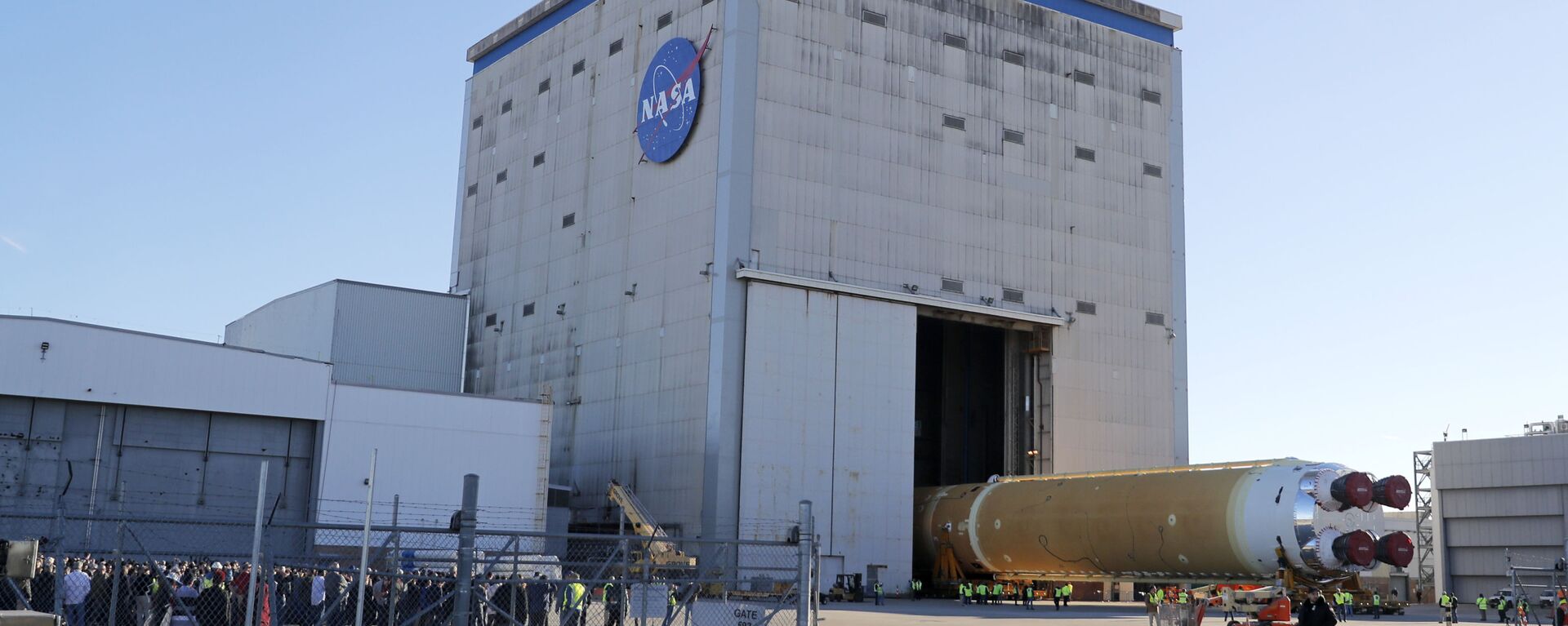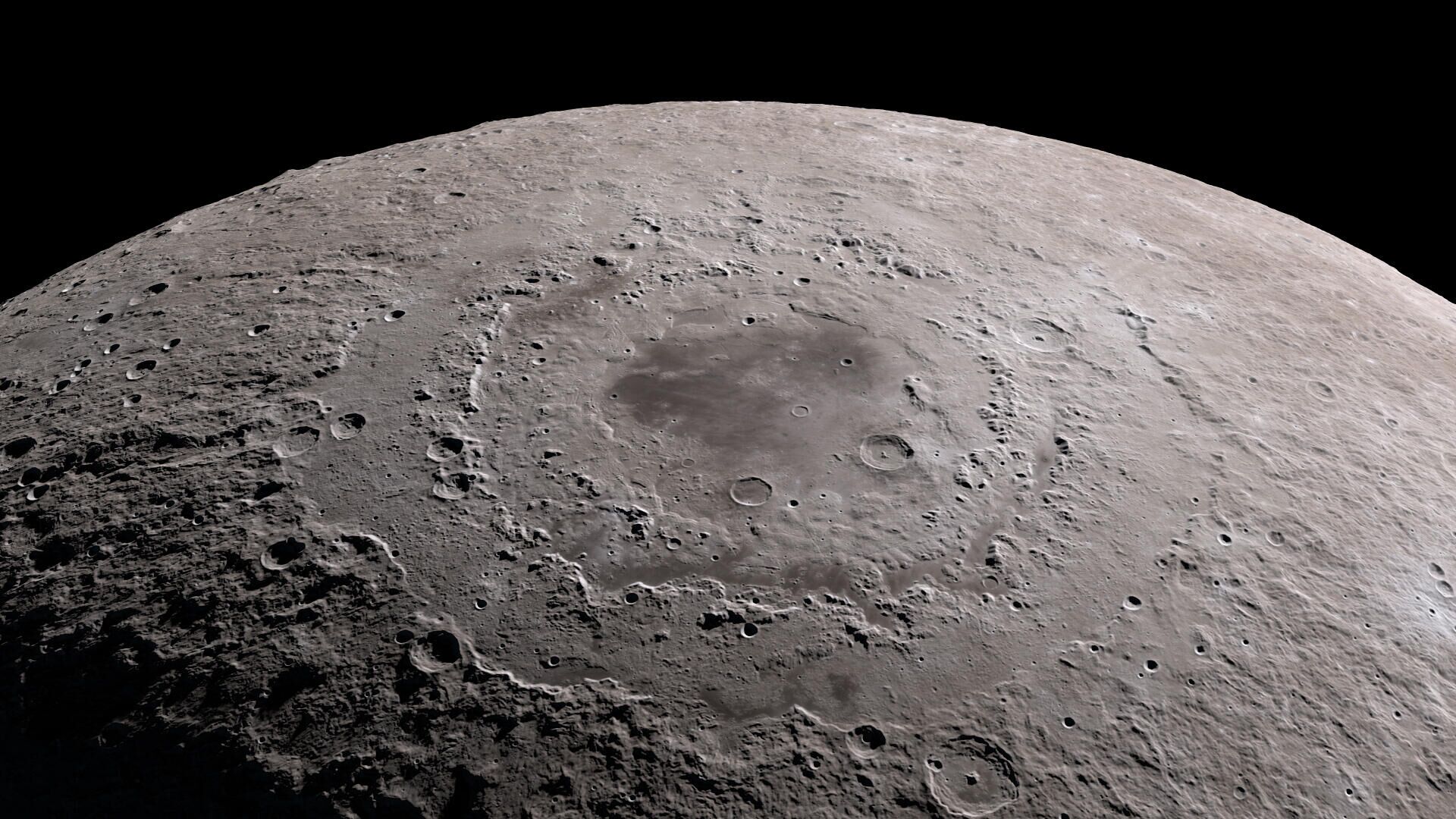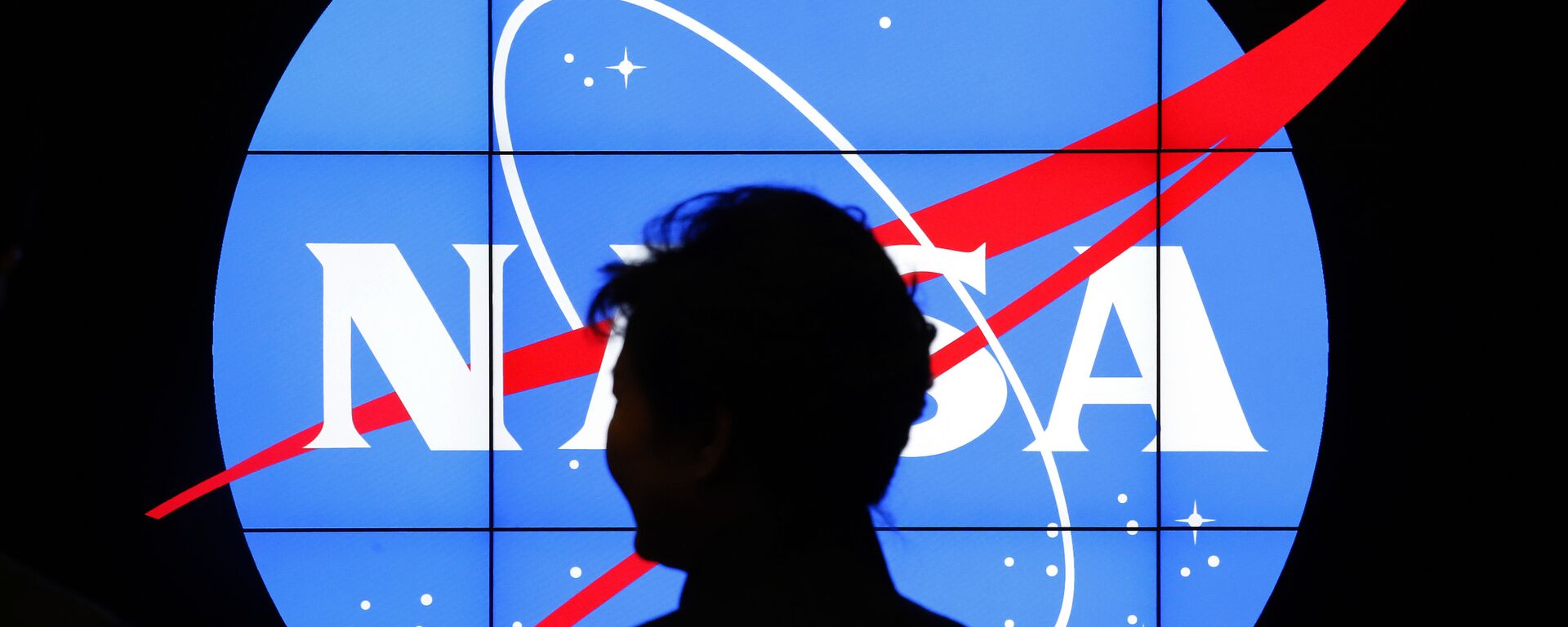https://sputnikglobe.com/20240725/viper-rover-cancellation-throws-future-of-us-manned-lunar-missions-into-jeopardy-1119508444.html
VIPER Rover Cancellation Throws Future of US' Manned Lunar Missions Into Jeopardy
VIPER Rover Cancellation Throws Future of US' Manned Lunar Missions Into Jeopardy
Sputnik International
WASHINGTON (Sputnik) - NASA's decision to cancel its almost half-a billion-dollar Volatiles Investigating Polar Exploration Rover (VIPER) project puts the... 25.07.2024, Sputnik International
2024-07-25T21:37+0000
2024-07-25T21:37+0000
2024-07-25T21:55+0000
analysis
science & tech
earl rasmussen
nasa
moon
moon mission
manned spaceflights
manned missions
https://cdn1.img.sputnikglobe.com/img/07e6/01/0f/1092276202_0:0:1920:1080_1920x0_80_0_0_7cfc44439ec79e6ecc5718c4b2944299.jpg
The US space agency announced earlier that it was pulling the plug on the already long-delayed, problem-plagued project that had been presented as a crucial preparation for the ambitious and also delayed manned Artemis missions to establish a permanent American base at the lunar South Pole. Retired US Army Colonel Earl Rasmussen warned that NASA's decision, which was presented as a cost-cutting measure to stay within the agency's operating budget, put the entire Artemis program and vision at risk. The Artemis Program now urgently needed a detailed review to include its objectives, team participants, technical challenges, schedule as well as costs, Rasmussen advised. Cost issues were far from the only factors at work in the cancellation decision and the seriousness of supply chain production issues had not been sufficiently anticipated, Rasmussen observed. The VIPER Rover was already 18 months behind schedule when the cancellation was announced and more problems were likely before the Rover could ever become operational, Rasmussen explained. Testing Challenges and DelaysRasmussen mentioned that, despite the completion of VIPER's development, testing challenges and delays are anticipated. In addition, he stressed the need for further inquiries to resolve many outstanding questions. Many of the problems plaguing the project appeared due to poor advanced planning and over-optimistic reliance on individuals, or far too few companies to manufacture the components, Rasmussen noted. Canadian economic historian and industrial analyst Matthew Ehret, vice president of the Rising Tide Foundation in Montreal warned that NASA's decision to cancel the Rover was part of a momentous retreat from technological development and exploration that would have dire consequences for America's future. In reality, the United States was already admitting defeat in a technological race that would determine the future of the human race for centuries to come, Ehret predicted. NASA had now written off nearly half a billion dollars on a project that was vital to the survival and spread of the human race, Ehret charged. Moreover, NASA's announced justification for selling off the Rover for spare parts did not make any business sense, he noted. American University in Moscow President Edward Lozansky, a former Soviet nuclear physicist, added that many of the design and engineering problems plaguing the Rover and other key elements of the Artemis program could have been avoided or efficiently resolved already if the Biden administration had not rejected any prospect of cooperation on the project with the Russian and Chinese space programs. NASA's original plan called for VIPER to reach the lunar surface in December 2022, adventuring across miles of lunar territory for a 100-day period and also using its four science instruments including a 1-meter drill to gather soil samples across a range of light and temperature.
https://sputnikglobe.com/20230908/nasa-admits-costs-for-space-launch-system-for-artemis-missions-unaffordable---gao-1113193761.html
https://sputnikglobe.com/20240622/nasa-innovation-slowed-down-by-bureaucracy-probably-will-not-land-humans-on-moon-in-2026-1119056617.html
Sputnik International
feedback@sputniknews.com
+74956456601
MIA „Rossiya Segodnya“
2024
Sputnik International
feedback@sputniknews.com
+74956456601
MIA „Rossiya Segodnya“
News
en_EN
Sputnik International
feedback@sputniknews.com
+74956456601
MIA „Rossiya Segodnya“
Sputnik International
feedback@sputniknews.com
+74956456601
MIA „Rossiya Segodnya“
science & tech, earl rasmussen, nasa, moon, moon mission, manned spaceflights, manned missions
science & tech, earl rasmussen, nasa, moon, moon mission, manned spaceflights, manned missions
VIPER Rover Cancellation Throws Future of US' Manned Lunar Missions Into Jeopardy
21:37 GMT 25.07.2024 (Updated: 21:55 GMT 25.07.2024) WASHINGTON (Sputnik) - NASA's decision to cancel its almost half-a billion-dollar Volatiles Investigating Polar Exploration Rover (VIPER) project puts the entire Artemis Program to land US astronauts on the moon for the first time in five and a half decades at risk, analysts told Sputnik.
The US space agency announced earlier that it was pulling the plug on the already long-delayed, problem-plagued project that had been presented as a crucial preparation for the ambitious and also delayed manned Artemis missions to establish a permanent American base at the lunar South Pole.
Retired US Army Colonel Earl Rasmussen warned that NASA's decision, which was presented as a cost-cutting measure to stay within the agency's operating budget, put the entire Artemis program and vision at risk.
"I think the entire Artemis program is at risk," Rasmussen, a political consultant and former vice president of the Eurasia Foundation said. "The rover and lander are key components. And both have technical, schedule, and cost challenges. Complex supply chains only complicated the situation more and increased overall risks."
The Artemis Program now urgently needed a detailed review to include its objectives, team participants, technical challenges, schedule as well as costs, Rasmussen advised.

8 September 2023, 04:13 GMT
Cost issues were far from the only factors at work in the cancellation decision and the seriousness of supply chain production issues had not been sufficiently anticipated, Rasmussen observed.
"Perhaps cost is a driving factor: But I think there are many more we are not aware of; And that NASA may not be aware of. Multiple supply chain issues are potential indicators of hidden technical development challenges as well. The supply chain seems to be very complex, and a thorough examination needs to be taken of what are the underlying causes," he said.
The VIPER Rover was already 18 months behind schedule when the cancellation was announced and more problems were likely before the Rover could ever become operational, Rasmussen explained.
Testing Challenges and Delays
Rasmussen mentioned that, despite the completion of VIPER's development, testing challenges and delays are anticipated.
In addition, he stressed the need for further inquiries to resolve many outstanding questions.
Many of the problems plaguing the project appeared due to poor advanced planning and over-optimistic reliance on individuals, or far too few companies to manufacture the components, Rasmussen noted.
Canadian economic historian and industrial analyst Matthew Ehret, vice president of the Rising Tide Foundation in Montreal warned that NASA's decision to cancel the Rover was part of a momentous retreat from technological development and exploration that would have dire consequences for America's future.
"The cancellation of the already constructed Rover represents not only a failure in vision or any long-term thinking that may have given the decaying republic any viability but also a failure in understanding the basics of economic value," he said.
In reality, the United States was already admitting defeat in a technological race that would determine the future of the human race for centuries to come, Ehret predicted.
NASA had now written off nearly half a billion dollars on a project that was vital to the survival and spread of the human race, Ehret charged. Moreover, NASA's announced justification for selling off the Rover for spare parts did not make any business sense, he noted.
American University in Moscow President Edward Lozansky, a former Soviet nuclear physicist, added that many of the design and engineering problems plaguing the Rover and other key elements of the Artemis program could have been avoided or efficiently resolved already if the Biden administration had not rejected any prospect of cooperation on the project with the Russian and Chinese space programs.
NASA's original plan called for VIPER to reach the lunar surface in December 2022, adventuring across miles of lunar territory for a 100-day period and also using its four science instruments including a 1-meter drill to gather soil samples across a range of light and temperature.




